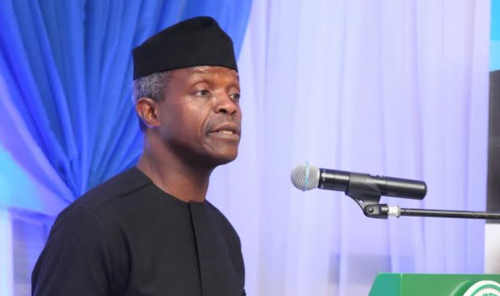
THE Federal Government has approved the concessioning of Nigeria’s two leading airports, the Murtala Muhammed Airport, Lagos and the Nnamdi Azikwe International Airport, Abuja.
Vice President Yemi Osinbajo disclosed this while speaking at the fifth edition of the presidential quarterly business forum which held at the Presidential Villa, Abuja on Monday.
He was however silent on the identities of the concessionaires of the two airports only disclosing that the decision was approved at a meeting of the Federal Executive Council (FEC).
“I am pleased to say that the federal executive council (FEC) has approved the concessioning of the Lagos and Abuja airports,” Osinbajo said.
According to him, the federal government was mainly committed to the ease of doing business in Nigeria because it was intent on ensuring a general overhaul of the business environment.
The Vice President said that concession of all airports in the country was part of this initiative.
“First, we want to do a general overhaul. Second, we want to concession all the airports. I am pleased to say that the Federal Executive Council (FEC) has approved the concessioning of the Lagos and Abuja airports,” he stated.
He defended government partnership with the private sector as a sensible decision to take at the moment, as according to him, it serves as the forum for the government to receive both criticisms and suggestions from the private sector.
Osinbajo said government’s commitment to the ease of doing business was based on evolution plans and capacity building.
He noted that capacity building was necessary to improve the capacity of government agencies which regulate business activities.
Not minding the fact that the pursuit of enabling business environment might be slow, he said the government would remain focused.
This he said explained the necessity of the executive orders recently signed by government in order to ensure that things were done the proper way.
Speaking on the challenges of power supply in the country, the vice-president pointed out that power generation in the country was now 6,700 megawatts with about 2000 megawatts wasted on a daily basis because of problems associated with connection as well as problems between the transmission and distribution companies.
Another problem he highlighted which caused the distribution companies’ unwillingness to take the 2,000 megawatts was the refusal of some consumers to pay.
But he assured of government’s commitment to improving power infrastructure in the country.
END

Be the first to comment